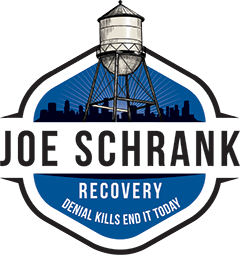When someone admits to “needing help,” what does that mean? There are more than 20,000 treatment facilities in the country, all with varying theories as to what will help. So how does one go about choosing the appropriate treatment? Most people take to the Internet and are bombarded with websites that all look enticing, but the reality of being there can be quite different from the websites.
Finding the Right Treatment Option for You
Most rehabs are sold on initial visual impressions along with amenities and the level of comfort. Oftentimes, the actual treatment is an afterthought. To add to the complexity, the industry is notorious for unethical marketing, masking highly sophisticated operations steeped not in empathy or ethics but in profit margin. The problems of the industry are the byproduct of poor delivery of services. As a result, choosing an inappropriate treatment center is an easy misstep to make. For more than 20 years, Joe has spent his life in the rehab world. He has been to many of them and knows the key players as well as the individual flavor of many. Good rehab isn’t dependent on paying more to get more. Oftentimes, the selection depends on the right fit: what program will be the best fit for the needs of an individual? What about insurance? What is the difference between inpatient and outpatient?
When someone presents as addicted, it is likely that other mental health issues are in play. Alcoholism and addiction have some close cousins in depression and anxiety. While an argument among professionals rages on, the truth is it doesn’t matter if mental health is causing addiction or if addiction is rooted in deteriorating mental health. What matters is that both are addressed effectively. Many rehab websites claim “dual diagnosis” treatment, but that is a very broad term. The rehab world is heavily steeped in the 12 step process as the North Star of guiding treatment and programs. While millions have found 12 step life helpful, even life-saving, millions more have not. Unfortunately, the 12 step culture is often guarded and rigid.
It is important to understand what Alcoholics Anonymous is and what it is not. It can be an effective mutual help program that may or may not be part of a person’s long term road to health. It is not, however, professional help or treatment. There is no peer reviewed scholarly research to document what AA does or does not do; there is no training for delivery of services; there is no code of ethics or professional organization to review practices. Many treatment centers simply provide containment within an AA setting. Addiction and alcoholism are complex mental health issues. The odds of achieving improvement by relying solely on AA is outside Joe’s spectrum of integrity. Many people have found recovery by attending AA meetings, and that is available to all for the asking and by attending. It makes no sense to dress that up as treatment and to pay for it.
Every situation is unique. When selecting mental health treatment, the stakes are high and the margin for error is slim. With a vast amount of experience, innumerable site visits, and intricate knowledge of mental health, Joe can be your Sherpa in making the best possible decision. While nobody can foresee the future, we can take actions to manage risk and minimize a negative outcome. Very often, Joe can negotiate the fee of treatment and help you avoid losing money by trying to manage this experience on your own. Few people repair their own car, prepare their own taxes, cut their own hair, or perform their own surgery. You shouldn’t select a rehab without a seasoned guide.
